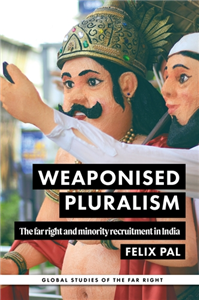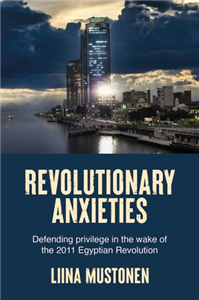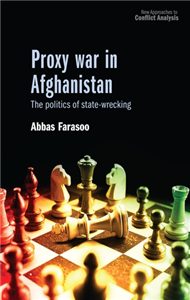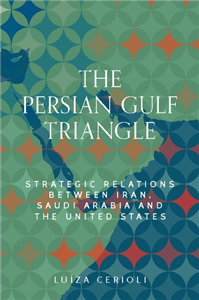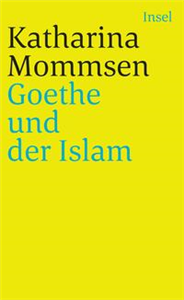Your Search Results
-
Promoted ContentHumanities & Social SciencesSeptember 2020
Queer Muslim diasporas in contemporary literature and film
by Alberto Fernández Carbajal, Amina Yaqin
-
Promoted ContentHumanities & Social SciencesMay 2026
Weaponised pluralism
The far right and minority recruitment in India
by Felix Pal
Weaponised pluralism takes a fine-grained lens to understand why far-right organisations recruit from the very minorities they oppose. Why do these organisations seek to appear like pluralists? Building on his time with the Muslim wing of the Hindu far-right in India, Felix Pal proposes that bigots can strategically use what he calls weaponised pluralism. This political strategy counterintuitively uses progressive political performances to bolster bigoted political agendas. Basing his analysis in an Indian context, Weaponised pluralism nonetheless reveals much about contexts as varied as Palestinian soldiers in the Israeli army, Indigenous Australians on far-right television, and Black congressional candidates in the American Republican Party. Drawing on rare access to the Hindu far-right and its Muslim wing, Pal paints an evocative picture of the complexities of how far-right organising extends far beyond the pointy end of traditional bigotry.
-
 Trusted Partner
Humanities & Social SciencesJanuary 2026
Trusted Partner
Humanities & Social SciencesJanuary 2026Surviving repression
The Egyptian Muslim Brotherhood after the 2013 coup
by Lucia Ardovini
Surviving repression tells the story of the Muslim Brotherhood following the 2013 coup d'état in Egypt. The Brotherhood gained legal recognition and quickly rose to power after the 2011 Arab uprisings, but its subsequent removal from office marked the beginning of the harshest repression of its troubled history. Forced into exile, the Brotherhood and its members are now faced with a monumental task as they rebuild this fragmented organisation. Drawing on extensive fieldwork and interviews with current and former members of the Brotherhood, the book explores this new era in the movement's history, emphasising first-hand experiences, perspectives and emotions to better understand how individual responses to repression are affecting the movement as a whole. Surviving repression offers a unique insight into the main strategic, ideological and organizational debates dividing the Brotherhood.
-
 Trusted Partner
Humanities & Social SciencesMarch 2017
Trusted Partner
Humanities & Social SciencesMarch 2017The harem, slavery and British imperial culture
Anglo-Muslim relations in the late nineteenth century
by Diane Robinson-Dunn
This book focuses on British efforts to suppress the traffic in female slaves destined for Egyptian harems during the late-nineteenth century. It considers this campaign in relation to gender debates in England, and examines the ways in which the assumptions and dominant imperialist discourses of these abolitionists were challenged by the newly-established Muslim communities in England, as well as by English people who converted to or were sympathetic with Islam. While previous scholars have treated antislavery activity in Egypt first and foremost as an extension of earlier efforts to abolish plantation slavery in the New World, this book considers it in terms of encounters with Islam during a period which it argues marked a new departure in Anglo-Muslim relations. This approach illuminates the role of Islam in the creation of English national identities within the global cultural system of the British Empire. This book would appeal to those with an interest in British imperial history; Islam; gender, feminism, and women's studies; slavery and race; the formation of national identities; global processes; Orientalism; and Middle Eastern studies.
-
 Trusted Partner
August 2017
Trusted Partner
August 2017Umweltprüfungen als Vorsorgeinstrument.
Deutsch-koreanischer Rechtsvergleich.
by Kim, Ji Hee
-
 Trusted Partner
Humanities & Social SciencesMarch 2026
Trusted Partner
Humanities & Social SciencesMarch 2026Revolutionary anxieties
Defending privilege in the wake of the 2011 Egyptian Revolution
by Liina Mustonen
Revolutionary anxieties sheds light on an unexplored dimension of the 2011 Egyptian revolution: the anxieties experienced by Cairo-based liberal elite, socialites, and cultural actors who opposed the rise of the new political actors, the Muslim Brotherhood. This book provides fresh insights into the failure of the Egyptian revolution by examining the perspectives of those who had a vested interest in maintaining the status-quo. It engages with post-colonial theory and examines the elite milieu in Cairo through the lenses of gender and race. Based on over two years of ethnographic research in various elite locations such as the Cairo Opera House, an Egyptian-European film festival, and an elite sporting club in Cairo, the book illustrates how members of Egyptian liberal upper class insisted on their privilege in a moment when the country's class hierarchies were challenged. By revealing the prevalence of counter-revolutionary sentiment among Cairo's liberal and affluent elite, the book tells an untold story of the Arab Spring.
-
 Trusted Partner
Humanities & Social SciencesJune 2013
Trusted Partner
Humanities & Social SciencesJune 2013Islam and identity politics among British-Bangladeshis
A leap of faith
by Ali Riaz
This book probes the causes of and conditions for the preference of the members of the British-Bangladeshi community for a religion-based identity vis-à-vis ethnicity-based identity, and the influence of Islamists in shaping the discourse. The first book-length study to examine identity politics among the Bangladeshi diaspora delves into the micro-level dynamics, the internal and external factors and the role of the state and locates these within the broad framework of Muslim identity and Islamism, citizenship and the future of multiculturalism in Europe. Empirically grounded but enriched with in-depth analysis, and written in an accessible language this study is an invaluable reference for academics, policy makers and community activists. Students and researchers of British politics, ethnic/migration/diaspora studies, cultural studies, and political Islam will find the book extremely useful. ;
-
 Trusted Partner
Trusted Partner
-
 Trusted Partner
June 2025
Trusted Partner
June 2025Proxy war in Afghanistan
The politics of state-wrecking
by Abbas Farasoo
This book provides a compelling analysis of proxy warfare and its far-reaching implications for statehood, focusing on the conflict in Afghanistan. Introducing the innovative concept of "state-wrecking," it bridges theory and practice to unravel how external support for insurgent actors fuels violence, undermines territorial control and sovereignty, intensifies violence, and dismantles political legitimacy. The work shifts the discourse on proxy wars from the strategies of global powers to the procedural and structural impacts within target states. Grounded in rigorous empirical research, including interviews, archival data, and conflict analysis, the book critically examines the Pakistan-Taliban nexus and the limitations of US-led interventions. By blending a robust theoretical framework with in-depth case studies, it reveals how proxy dynamics shape conflicts, disrupt governance, and challenge international security. This is an essential resource for those seeking to understand the entanglements of modern warfare and the fragility of states under external influence.
-
 Trusted Partner
Humanities & Social SciencesDecember 2024
Trusted Partner
Humanities & Social SciencesDecember 2024Iran, Saudi Arabia and the United States
Power, identity and strategy in the Persian Gulf triangle
by Luíza Cerioli
This book offers a nuanced snapshot of the complex geopolitical dynamics in the Persian Gulf, underlining the interaction between Iran, Saudi Arabia, and the US. Examining their interwoven relations since the 1970s, Luíza Cerioli's framework reveals how changes in US-Saudi ties have ripple effects on Iran-US and Iran-Saudi relations and vice versa. Using a historical lens, she explores how enduring US-Saudi connections hinge on order expectations, delves into the cognitive factors shaping US-Iran enmity and traces the source of oscillation in the Saudi-Iran ties. Employing Neoclassical Realism, the book investigates status-seeking, national identities and leadership preferences, offering a deeper understanding of the region's multipolar system. By combining International Relations and Middle East Studies, Cerioli's work contributes to both fields, unravelling the intricate interplay between international structures, regional nuances and agency in shaping Persian Gulf geopolitics.
-
 Trusted Partner
Humanities & Social SciencesJune 2025
Trusted Partner
Humanities & Social SciencesJune 2025Diaspora diplomacy
The politics of Turkish emigration to Europe
by Ayca Arkilic
Since the early 2000s, Turkey has shown an unprecedented interest in its diaspora. This book provides the first in-depth examination of the institutionalisation of Turkey's diaspora engagement policy since the Justice and Development Party's rise to power in 2002, the Turkish diaspora's new role as an agent of diplomatic goals, and how Turkey's growing sphere of influence affects intra-diaspora politics and diplomatic relations with Europe. The book is based on fieldwork in Turkey, France and Germany, and interviews conducted with diaspora organisation leaders and policymakers. Diasporas have become transformative for relations at the state-to-state level and blur the division between the domestic and the foreign. A case study of Turkey's diasporas is significant at a time when emigrants from Turkey form the largest Muslim community in Europe and when issues of diplomacy, migration and citizenship have become more salient than ever.
-
 Trusted Partner
Trusted Partner
-
 Trusted Partner
Trusted Partner
-
 Trusted Partner
October 2015
Trusted Partner
October 2015Islam - Zivilisation oder Barbarei?
by Alexander Flores
Alles, was Sie über den Islam wissen sollten Die Debatte um den Islam ist immer eine polemische: Salafismus, Scharia, Frauenrechte, Boko Haram, IS – zu allem haben wir eine Meinung. Aber wissen wir denn wirklich, was sich hinter diesen Phänomenen verbirgt? Alexander Flores kann Abhilfe schaffen, denn er widmet sich den Fakten. Flores beschreibt einen Modernismus, der Anfang des 20. Jahrhunderts dem Islam eine weltanschauliche Öffnung ermöglichen sollte; eine Scharia, die über lange Zeit hinweg nicht drakonisches »Gottesrecht« war, sondern Orientierung für eine islamische Lebensführung. Und er erklärt, wie der Koran mit seinen verschiedenen Lesarten instrumentalisiert werden konnte und damit Radikalisierungen ermöglichte, die wir heute mehr denn je zu spüren bekommen.
-
 Trusted Partner
April 2001
Trusted Partner
April 2001Goethe und der Islam
by Katharina Mommsen, Peter Anton Arnim, Peter Anton Arnim
Katharina Mommsen hat sich intensiv mit dem Einfluß des Islam auf Goethes Leben und Werk auseinandergesetzt und ist dabei zu Ergebnissen gelangt, die dem Leser neue Perspektiven eröffnen.
-
 Trusted Partner
March 1988
Trusted Partner
March 1988Religiöse Entwicklungen im Islam
Beobachtet in Marokko und Indonesien
by Clifford Geertz, Brigitte Luchesi, Bassam Tibi
Clifford Geertz formuliert zunächst einen allgemeinen Rahmen für die vergleichende Erforschung von Religion und wendet sein anthropologische, soziologische und historische Perspektiven integrierendes Konzept bei der Untersuchung der Entwicklung vermeintlich ein und desselben Glaubenssystems - des Islam - in zwei ziemlich gegensätzlichen Zivilisationen - Indonesien und Marokko - an. Eine Sozialgeschichte der Vorstellungskraft bietet Clifford Geertz für Marokko und Indonesien. Darauf aufbauend formuliert er im letzten Kapitel einige allgemeinere Bemerkungen zur gesellschaftlichen Rolle der Religion.
-
 Trusted Partner
October 2007
Trusted Partner
October 2007Islam in Europa
Eine internationale Debatte
by Thierry Chervel, Anja Seeliger, Thierry Chervel
Wen soll der Westen unterstützen: gemäßigte Islamisten wie Tariq Ramadan oder islamische Dissidenten wie Ayaan Hirsi Ali? Der französische Philosoph Pascal Bruckner sorgte Anfang 2007 für Aufsehen, als er in einer polemischen Streitschrift den vermeintlichen liberalen Konsens im Umgang mit dem Islam attackierte. Beweglicher und schneller, als das in den traditionellen Medien möglich gewesen wäre, entwickelte sich auf den Seiten der Internetplattformen perlentaucher.de und signandsight.com eine kontroverse Debatte, die den aktuellen Stand der Diskussion um Multikulturalismus in Europa markiert – und darüber hinausweist.
-
 Trusted Partner
Trusted Partner
-
 Trusted Partner
November 2012
Trusted Partner
November 2012Islam und Moderne. Die neuen Denker
by Rachid Benzine, Hadiya Gurtmann
Intellektualität und Frömmigkeit zu vereinbaren, das ist das Ziel einer ganzen Generation muslimischer Denker. Unabdingbare Voraussetzung dafür ist die Entwicklung einer neuen Hermeneutik der Koraninterpretation, zu der muslimische Gelehrte aus zahlreichen Ländern ihren Beitrag leisten und dafür mitunter Kopf und Kragen riskieren. Ihre Namen sind hierzulande noch kaum bekannt, da die wenigsten ihrer Schriften ins Deutsche übersetzt worden sind. Dennoch findet ihr Beitrag zur Versöhnung des Islams mit der Moderne auch in Deutschland hohe Anerkennung: So war zum Beispiel der 2010 verstorbene gebürtige Algerier Mohammed Arkoun, Professor an der Sorbonne in Paris, Fellow am Wissenschaftskolleg zu Berlin, desgleichen der ebenfalls 2010 verstorbene Ägypter Nasr Hamid Abu Said. Andere Vertreter, die Benzine in seinem Buch darstellt, sind Fazlur Rahman, Farid Esack (Südafrika), Abdul Karim Sorush (Iran) und Abdelmajid Charfi (Tunesien). Neben dem leidenschaftlichen Engagement für die Sache, der sich diese neuen Denker verschrieben haben und so zu Hoffnungsträgern für viele Muslime geworden sind, beeindruckt die persönliche Opferbereitschaft, die manchem von ihnen abverlangt wurde. Abu Saids Ehe etwa wurde zwangsgeschieden, er erhielt Morddrohungen und mußte ins niederländische Exil flüchten.
-
 Trusted Partner
Trusted Partner





